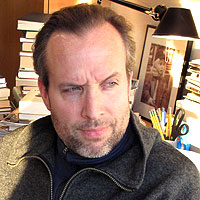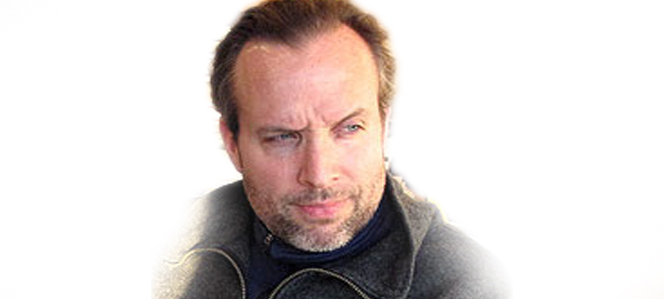The Last Acceptable Prejudice Rides Again
By Rev. Robert Barron
 Anti-Catholicism has long been a feature of both the high and the low culture in America. From the nineteenth-century to the middle of the twentieth-century, it was out in the open: many editorialists, cartoonists, politicians, and other shapers of popular opinion in that era were crudely explicit in their opposition to the Catholic Church. But then, in the latter half of the twentieth-century, anti-Catholicism went relatively underground. It still existed, to be sure, but it was considered bad form to be too obvious about it. However, in the last ten years or so, the old demon has re-surfaced. There are many reasons for this, including the animosity to religion in general prompted by the events of September 11th and, of course, the clerical sex-abuse scandal that has, legitimately enough, besmirched the reputation of the Catholic Church. I’m not interested here so much in exploring the precipitating causes of this negative attitude as I am in showing the crudity and unintelligence of its latest manifestations. Permit me to share two examples.
Anti-Catholicism has long been a feature of both the high and the low culture in America. From the nineteenth-century to the middle of the twentieth-century, it was out in the open: many editorialists, cartoonists, politicians, and other shapers of popular opinion in that era were crudely explicit in their opposition to the Catholic Church. But then, in the latter half of the twentieth-century, anti-Catholicism went relatively underground. It still existed, to be sure, but it was considered bad form to be too obvious about it. However, in the last ten years or so, the old demon has re-surfaced. There are many reasons for this, including the animosity to religion in general prompted by the events of September 11th and, of course, the clerical sex-abuse scandal that has, legitimately enough, besmirched the reputation of the Catholic Church. I’m not interested here so much in exploring the precipitating causes of this negative attitude as I am in showing the crudity and unintelligence of its latest manifestations. Permit me to share two examples.
I’m currently reading James Miller’s Examined Lives, a biographical study of twelve great philosophers, from Socrates to Nietzsche. I found Miller’s treatment of St. Augustine to be extraordinary, not because it shed any particularly new light on the saint’s work, but because it was so unapologetically anti-Catholic. Miller comments approvingly on the young Augustine, the intellectual seeker who moved from Manichaeism to neo-Platonism in the open-minded quest for the always elusive truth. But on Miller’s reading, the seeker’s fall from grace was his embrace of the “closed system” of Christianity, which led Augustine to become a coldly oppressive sectarian. Here is how Miller brings his analysis of Augustine to a close: “he lay the conceptual grounds for creating perhaps the most powerful community of closed belief in world history—the Catholic Church that ruled over medieval Western Europe as an all-encompassing, if not quite totalitarian theocracy, unrivalled before or since by any other religious or secular one party state, be it Muslim or Communist.” The not so subtle implication (despite that little “not quite” in front of “totalitarian”) is that the Catholic Church has proven more oppressive than the Taliban and the states fronted by Lenin, Stalin, Mao, and Pol Pot!
But Miller’s excursions into anti-Catholicism seem as nothing, compared to the exertions of Mark Warren, the executive editor of Esquire magazine. In a piece on his blog last week, Warren drew attention to a recent expose of the church of Scientology which appeared in the pages of the New Yorker magazine. He praised the author for revealing the ridiculous beliefs of Scientology, which are based upon the wild science-fictionesque musings of L. Ron Hubbard. But then Warren commented that these claims are no wilder, no more irrational, than those of any other of the “great” religions, including and especially Christianity. What follows is one of the most ludicrous “summaries” of Christian belief I’ve ever read. Here are some highlights: “I grew up believing that every breath I drew sent a god-made-man named Jesus Christ writhing on the cross to which he had been nailed—an execution for which he had been sent to earth by his heavenly father.” And “yet I was born not innocent but complicit in this lynching, incomprehensibly having to apologize and atone for this barbarism for all my days and feel terrible about myself and all mankind.” And “his (Jesus’) spirit had risen on a cloud into heaven to rejoin the same god in the sky who had sent him on this errand in the first place.”
One notices here something that is also on display in the anti-Christian polemics of Bill Maher and Christopher Hitchens, namely, a presentation of Christianity that is informed by a painfully childish “theology,” something out of a half-understood grade-school catechism. For example, Maher, Hitchens, Warren, and many other critics speak of the Christian belief in a “sky god,” betraying absolutely no sensitivity to the dynamics of symbolic language in a religious context. The “heavenly” Father of whom Biblically minded people speak is not a being who dwells in the clouds, but rather a reality that radically transcends the categories of ordinary experience. And I can only smile at the sheer weirdness of Warren’s characterization of the purpose and meaning of Christ’s death on the cross. The correct doctrine is that God, in Christ, entered, out of love, into the depth of human misery, sin, and failure in order to bring the divine light even to those darkest places. It is in this sense that he took away the sins of the world and brought us life from the Father. In John’s Gospel, Jesus said, simply, “I have come that you might have life and have it to the full;” and St. Irenaeus, the great second century theological master, said, “the glory of God is a human being fully alive.” I don’t know where Mark Warren received his education in Catholic theology, but I can assure him that not one of his breaths is not causing Jesus to suffer and that he has no need to “atone” or “apologize” for what the Lord did on the cross. To address all of the issues that he raises, I’d have to offer Mr. Warren a course in basic theology and invite him to move beyond his elementary school understanding of Christian doctrine.
Convinced that Christian teaching is as much “mumbo-jumbo” as L. Ron Hubbard’s silliness, Warren urges his fellow journalists to let small-fry Scientology off the hook and go after some bigger fish, especially the cult into which he was initiated as a child, the Catholic Church. He wants them (and here the anti-Catholicism is blatant) to target the Pope in his “palace in the Vatican” who protects “criminals and child-molestors…with the ruthless demeanor of the CEO of a massive corporation lawyering up against the barrage of lawsuits to come.” Well. The sex-abuse crisis is real and devastating, but no one in the world has done more to address it over the past twenty years than Joseph Ratzinger, Pope Benedict XVI. No one has taken more concrete steps to deal with abusive priests and dysfunctional institutional patterns than the present Pope. To identify him as one of the “creeps” (Warren’s word) that journalists should investigate is not only mean spirited but stupid.
Again, what is most remarkable in all of this is not the unintelligence of the explicit claims being made but rather the blatancy of the contempt for the Church. When this hoary old prejudice shows itself, Catholics have to stand up to it, lest it be allowed to evolve into something even more dangerous.
